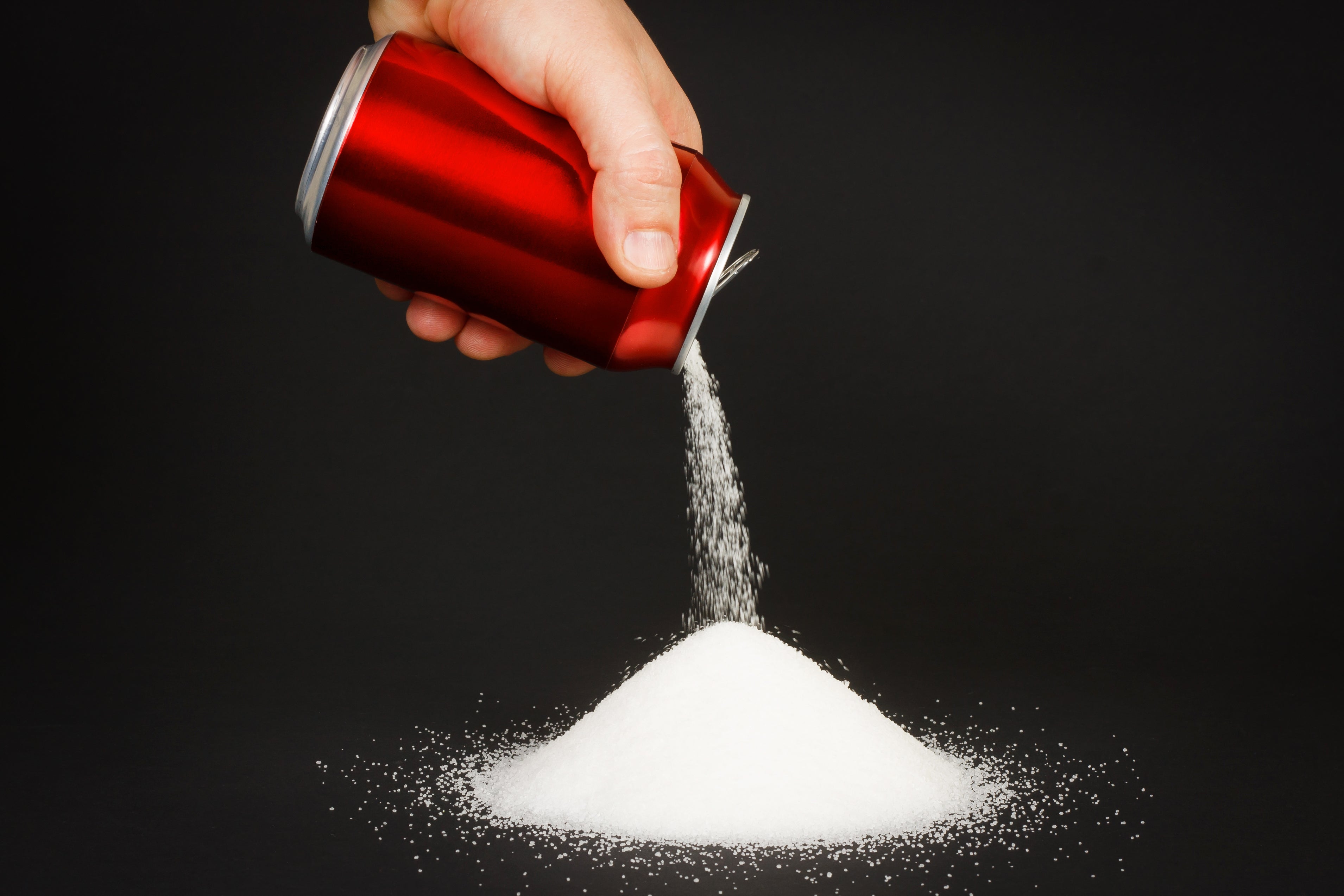Why do we love sugar so much? The answer to this question can be explained with evolutionary biology. Before the advent of mass agriculture and industrialization, our ancestors spent their days foraging for food, and nutritional sources of “quick energy,” such as concentrated sugars, were hard to come by and often dangerous to obtain (such as wild honey).
The calories and energy boost obtained from simple sugars provided the hunters-gatherers with an advantage, and to this day, eating sugary foods activates the reward circuits of our brains to encourage us to eat these foods whenever we find them.
However, unlike thousands of years ago, these days, we can find sugars almost everywhere in our daily environments and, since our penchant for them has not changed since the dawn of time, we are very likely to chronically overdose on them. In fact, we spend more of our time attempting to curb our diets.

In the recent years, World Health Organization (WHO) has reduced their sugar recommendations to less than 10% of our total calories coming from sugar, and suggesting to reduce our sugar intake to 5% of our total energy intake for additional health benefits.
Two out of three adults and one out of three children in the United States are now overweight, and the obesity epidemic is linked to increased sugar consumption.
So, how do we fight our sugar addiction? Here are several steps we can take to consume less sugar in our daily lives.
-
Become a good label reader

Unfortunately, most packaged products found at the supermarket contain added sugars and it is important to know the label lingo to recognize added sugars in the foods we buy. For example, labels listing corn syrup, organic cane sugar, molasses, honey, and fruit just concentrate, as well as ingredients ending in “ose,” such as maltose, dextrose, fructose and sucrose, all indicate added sugars. Foods containing 22.5 grams of sugar and more per 100 grams of product are considered as high in sugar, while foods containing 5 grams of sugar per 100 grams of product are considered as low in sugar.
-
Curb your sugar cravings

If you feel that you need to satisfy your sugar craving, try eating a piece of fruit, such as a banana, orange or an apple. Another healthy way to stop sugar cravings is to have a protein-rich snack, such as nuts or a yogurt. And, if your sweet tooth does not give in, try a natural substitute, such as Stevia, or a natural source of sugar, such as honey. In addition, spices such as cinnamon, nutmeg and turmeric can give your food unexpected flavors and significantly reduce your sugar cravings.
-
Take a close look at what you drink

In the average American diet, up to 25% of all the sugars consumed on a daily basis come from drinks. In addition, research shows that individuals who consume sugary drinks on a regular basis are 26% more likely to develop type 2 diabetes, and this is because many popular drinks, both hot and cold, contain high amounts of added sugar. Just for reference - a single 20-ounce soda contains an enormous amount of sugar: a total of 15 to 18 teaspoons. Popular drinks that are high in sugars include soda, juice boxes, energy drinks, and concentrated fruit juices, as well as prepared coffee-derived drinks, such as lattes and frappuccinos. Healthy and sugar-free alternatives include club soda, herbal teas and, obviously, just plain water.
-
Take a close look at your breakfast cereal

Many breakfast cereals we habitually eat are actually quite high in sugars. Substituting a high-sugar cereal with plain oatmeal, for example, can eliminate up to 70 grams of sugar from your diet each week. If you have a habit of adding extra sugar to your morning cereal, try substituting it with a piece of fruit. And, if you have the habit of eating toast for breakfast, try opting for whole-wheat bread to increase your fiber intake while decreasing the number of calories you consume.
-
Get more sleep

Have you ever noticed that your sugar cravings intensify if you are sleep-deprived? According to research, sleep deprivation increases our junk food cravings and may even lead to obesity. According to the researchers, following sleep deprivation, the brain regions responsible for higher-level decision making are less active, while more primal brain structures responsible for motivation and desire are more active. Therefore, getting enough sleep is an important factor in maintaining a healthy weight and by helping our brains make good food choices.
-
Ditch packaged food

As previously mentioned, packaged foods often contain high amounts of sugar, and this often includes “healthy” packaged foods, such as cereals and granola bars. Instead, choose fresh fruits and vegetables and whole grains. When choosing fruits, be aware that some of them contain higher amounts of sugars then others, and try to go for the fruits lower in sugar, such as lemons and limes, kiwis and raspberries.
There are also some great superfoods that are healthier for you and produce more sustainable energy for your body - check them out here!
Eugenia Petoukhov is a Canadian-based researcher and scientific writer. She is particularly interested in the inner workings of the brain, as well as in molecular and experimental medicine.
Hi! We’re Team Neuro, aficionados of all things brain-related, from creativity to working out. With backgrounds in art, science, and athletics, we love delving into all the potentials of the human body.
We also created the world's first sugar-free nootropic caffeine energy gum that utilizes the effects of caffeine and L-theanine, made to help you optimize your mind — anywhere, anytime. Find out more here.




























